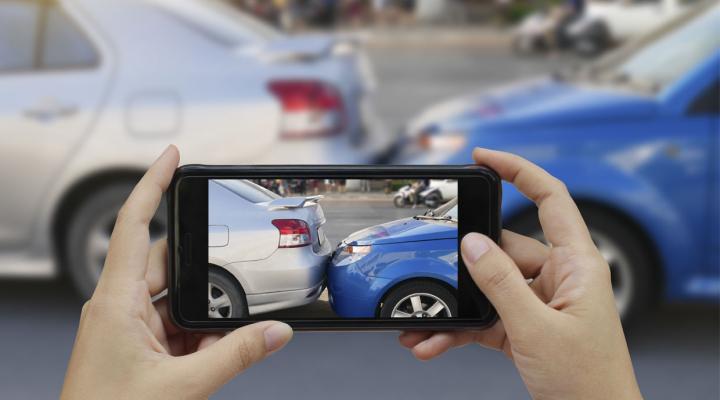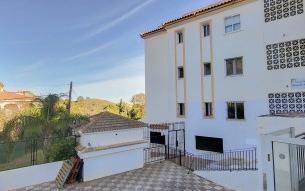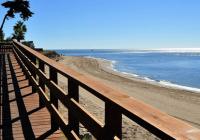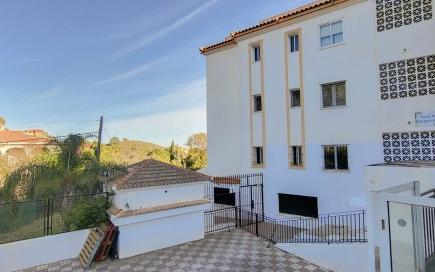
Whether it’s a bump in a car park, or a four-car pile-up on the motorway, being in a car accident is scary.
This is particularly true if you’re driving in Spain, or any other country where you don’t really understand the traffic rules or the legal procedures involved. In the unlikely event that you are in a car accident in Spain, we’ve got your back! Here’s everything you need to know about what you should do, and how you should deal with the process:
Be Prepared
Before you begin any journey in Spain it is important that your car is prepared and that you are carrying all the documentation and equipment that you are legally required to carry by law. Ensure that you have everything on this list in your vehicle:
- Your Driving Licence (Carnet de Conducir)
- The Car registration document, if you own the car, or the official rental document if you don’t. (Permiso de Circulación)
- ITV certificate (Ficha Técnica)
- Insurance policy document
- European Accident Statement (Declaración Amistosa de Accidente de Automóvil) DOWNLOAD HERE
- A fluorescent high visibility vest or jacket for each person in the vehicle
- Two warning triangles
- You might also with to carry the new V-16 emergency light. Having this in your car won’t be compulsory until 2026, but it is already considered advisable to carry this now.
The Legal Steps If Your Involved in an Accident
Once your car is prepared and you’re legally ready to get on the road, you should familiarise yourself with the steps that the Spanish police have issued to the general public to help them should they be in an accident: this comes in the form of an easy-to-remember mnemonic: PAS. This stands for Proteger (Protect) Avisar (raise the alarm) and Socorrer (Help).These should be your three main priorities: to protect those who have been involved in the accident, to alert the authorities, and then either provide help or seek help where possible. If you remember nothing else, then remember this mnemonic.
To help you further, here is a more in-depth step-by-step breakdown of what you should do:
- Stop your car or pull over if possible, and then switch on your hazard lights. Ensure everyone I the vehicle is wearing their hi-vis jackets before they begin to exit the vehicle
- Move away from the vehicle to somewhere safe. If you’re on a motorway then this should be behind the barriers. Always be away from oncoming traffic and as far away from other vehicles as possible.
- Place your two warning triangles outside your vehicle, but only if you can do so by walking along the pavement without having to walk alongside the hard shoulder. This is a new policy because of the introduction of the V-16 emergency light, as previously the triangles legally had to be placed no matter what the road conditions.
- If someone has been injured in the car accident then you should call 112 (the emergency services) as soon as possible. They will ask for your exact location, which you can give using the kilometer marker posts that are placed along each road in Spain. You should also inform them of how many people have been injured, any injuries sustained, and any other circumstances that would help the right emergency services to arrive.
- If no one is injured and you are able to drive away, there’s no need to call 112.
What to Do if Someone is Injured
If you have a car accident and someone is injured then you should leave them where they are, unless this would pose a further risk to their health due to safety reasons. If the accident involves a motorcyclist then their helmet should not be removed in any circumstances. Finally, the injured person should not be offered or given anything to eat or drink, but they should be made as comfortable as possible: if they are cold then you can cover them with a coat or blanket. Offer reassurance, a hand to hold, and let them know that help is on the way.
What to Do If the Accident is Minor
If you don’t need to call the police then there are still some other steps that you can follow that will make your life easier in the long run. These include:
- Taking the details of all vehicles involved in the accident, including their registration number, car make and model and if possible, the drivers name, license number, and insurance policy number too.
- If there are any witnesses to the accident, take all of their names and contact details in case you need them for your insurance company.
- To assist your insurer, you should also take as many photos as possible of the scene of the accident, draw sketches of what happened, and photographs to any vehicle damage too.
- If you damage a vehicle and the owner is not there (a parked car, for example) then you should visit the nearest police station to report the damage.
- Complete an accident form, called a Declaración Amistosa de Accidente: this is common practice is the accident is minor and both parties agree on the circumstances of the accident. However, if you don’t agree with the circumstances, or don’t understand what is written on the form (which is usually completed in Spanish) then please do not sign this. If you do complete this form then make sure you have a copy.
- If the police arrive on the scene, then they will also complete their own report, known as the “Atestado Policial” which you can also request a copy of.
Dealing With Insurance
If your car is broken down then you will need to call out a tow truck, which most insurance policies will cover as part of your break down policy. If you are able to drive your vehicle away independently then you will still legally need to inform your insurance company within 5-7 days, otherwise this may have a negative impact on your insurance claim. Your insurance company will probably want to see medical certificates of any injuries sustained, and may request images of the accident, as outlined above. If you were not at fault, then you may also wish to take legal action against the individual who did cause the accident. If this is the case, your accident should be reported to the authorities within two months, and you should take legal advice to see if your claim is valid as soon as possible.
Are you thinking of taking the plunge and moving to Spain? There’s plenty of wonderful reasons to make this beautiful country your home! Why not let our local property experts help you with your property search: get in touch today. We’re perfectly placed to help you turn your dreams of Spanish homeownership into a reality.

 English
English Español
Español Deutsch
Deutsch Français
Français Svenska
Svenska Nederlands
Nederlands Italiano
Italiano Norsk
Norsk Русский
Русский


































